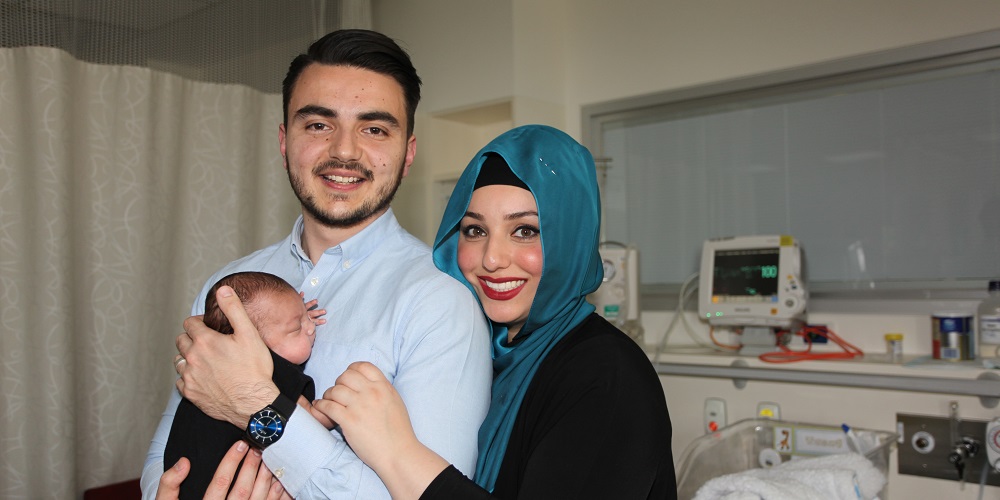
The Women’s is seeking to provide more support for the “forgotten parent,” dads, with research showing high rates of depression and anxiety.
Research from the Women’s and Murdoch Childrens Research Institute shows that 36 per cent of fathers to very premature babies experience depression, six time the rate of depression in fathers of full term babies.
The desperate need for a focus on fathers prompted the Women’s to establish a group support program for fathers of babies born premature. Due to demand, the Dads’ Group has progressed from fortnightly to weekly and the Women’s is advising hospitals in Australia and New Zealand regarding establishing similar groups.
The group recently featured on Nine News and Sunday Today.
Burak Demir’s son Yusuf was born at 23 weeks, a gestation period where only 20 per cent of babies survive.
“I was in a dark place where,” Mr Demir, a first time dad, said. “I felt I was on my own and even though I had a wonderfully supportive family, I felt no one understood how I felt.
“Being a guy you don’t want to cry or show your emotions. But in the Dads’ Group we talked about what we were going through and it was great to just get it off my shoulders. I realised I wasn’t the only one going through this and that I finally had support from people that were going through the exact same thing.”
Associate Professor Carl Kuschel, Director of Neonatal Medical Services at the Women’s established the Dads’ Group after seeing several fathers who on the surface appeared to be coping, falling into depression and post-traumatic stress disorder.
“Up until a few years ago, the Women’s, like most hospitals, focused on the care of the premature babies and the psychological health of mothers. Dads were largely the forgotten parent,” Associate Professor Kuschel said.
“Fathers to premature babies were struggling but we didn’t understand how significant the rates of depression and anxiety were until this year when we worked with the Murdoch Childrens Research Institute to undertake detailed research,” Assoc Prof Kuschel said. “The results were shocking, and showed not only a high rate of depression but that almost one in two dads were not talking about how they were feeling.
“We now actively seek out dads and ask them how they are coping and encourage them to attend the Dads’ Group.
“The Group has been an overwhelming success, allowing dads to see they are not alone and to chat to other fathers going through the same experiences,” Assoc Prof Kuschel said. “While our clinicians can advise dads on what to do, they are more likely to take it on board when other dads are telling them.”